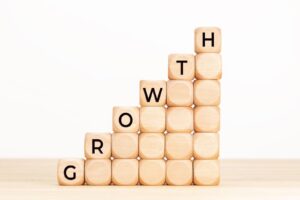 “What the mind can conceive, the body can achieve.”
“What the mind can conceive, the body can achieve.”
Chances are you’ve heard this saying, but did you know that there’s evidence to back it up?
In 2007, Stanford psychologist Carol Dweck released a remarkably insightful book called Mindset: The New Psychology of Success in which she analyses the power of beliefs, specifically, what we believe about ourselves.
Through her research, Dweck found that our conscious and subconscious beliefs about our ability to improve and evolve have a significant impact on whether or not we achieve our goals in the end.
She discovered that each person operates under one of two basic mindsets — a fixed mindset, or a growth mindset. Here are the differences between the two:
- Fixed Mindset: People operating under this mindset assume that their skills, intelligence, personality, and abilities are limited and unable to evolve over time. They believe that their talents are simply the cards they were dealt and they cannot be improved or altered in any significant way. Because of this, they compare their abilities to the skills and successes of other people and decide how they measure up from that place. This often creates a stifling fear of failure that pushes them to avoid doing anything that would make them look incapable or inferior. These individuals believe that if they have to put a lot of effort into a task or skill, they look weak and incapable. Therefore, they prefer to stick to the things they are naturally good at to maintain the image of being proficient.
- Growth Mindset: Oppositely from those with a fixed mindset, people with a growth mindset see their inherent talents as merely a starting point. To them, failures are like springboards for learning and improvement. They are eager to put in effort to grow their skills. They do not feel bound by their natural abilities, and they believe that with hard work and practice, they are able to become better than they were yesterday.
“In one world, effort is a bad thing. It, like failure, means you’re not smart or talented. If you were, you wouldn’t need effort. In the other world, effort is what makes you smart or talented.” – Carol Dweck
How does a growth mindset impact leadership?
In order to maximize your leadership potential, you must first believe that you are capable of doing so. Growth starts in your mind, and with practice and dedication, your actions and new habits will follow.
In my 30+ years of experience as an executive leadership coach, I have seen men and women struggle to lead their teams, and when it came down to it, the root of the issue was that they did not believe they possessed the inherent ability to lead people well. This subconscious unbelief bred insecurity, anxiety, and disorganization that bled into their work life and negatively impacted how their teams viewed them.
Maybe you aren’t a natural-born leader; that’s ok. Truly effective leadership is grown through development, training, and dedication. All you need to be is willing to put in the effort.
Are you ready to grow your leadership skills through executive leadership coaching? Contact me today for a FREE consultation.
About Dr. Wilkerson, PD, MBA, PCC.
Do you want to increase your impact? Do you want to increase profits under your leadership? Do you want to develop and use your abilities to the fullest to better connect with and lead others? Executive Leadership Coaching covers these bases. Dr. Jerrund Wilkerson, PD, MBA, PCC, has more than 30 years of successful executive leadership coaching in the United States and internationally.
As a licensed pharmacist, he is particularly passionate about helping develop effective leaders in the healthcare community. Dr. Wilkerson has coached and trained thousands of managers and leaders. He is a certified coach and member of the John Maxwell Leadership Team.
CLICK HERE to learn more.
